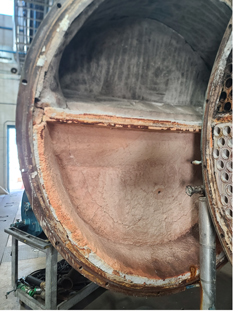Practical Plant Failure Analysis
Course Details
This 3-day course emphasizes a practical approach in learning how to accurately diagnose mechanical failures and how to prevent future failures. Discussions and instruction are geared toward industrial plants and hands-on experience. The course provides an understanding of how mechanical components function, letting students gain knowledge of the causes that contribute to all failures.
Upon completion of the course, participants will demonstrate the ability to lead a practical and systematic analysis to determine the physical root cause of the failure and recommend corrective actions to prevent future failures. You will learn to classify and understand the basic properties of materials, determine the causes of roller element bearing failures, fasteners fundamentals, power transmission failure mechanisms, gears damage mechanisms, and understand the influence of corrosion.
This reliability training course is instructed by reliability professionals in both public classroom settings and private on-site. Continuing Education: 24 PDH credits.
We take a closer look at:
- The Roots of Failures
- Material Properties
- Failure Mechanisms
- Fracture Analysis
- Fastener Failures
- Lubrication
- Roller Bearing Failure Analysis
- Gears
- Corrosion Recognition
- Power Transmission Elements
- Centrifugal Pumps
Our training course provides reliability engineers, plant engineers, maintenance mechanics, technicians, and supervisors with the knowledge and skills required to understand and eliminate failures. With over 30 years of development, this course offers extensive hands-on experience to give students the opportunity to evaluate actual broken components.

